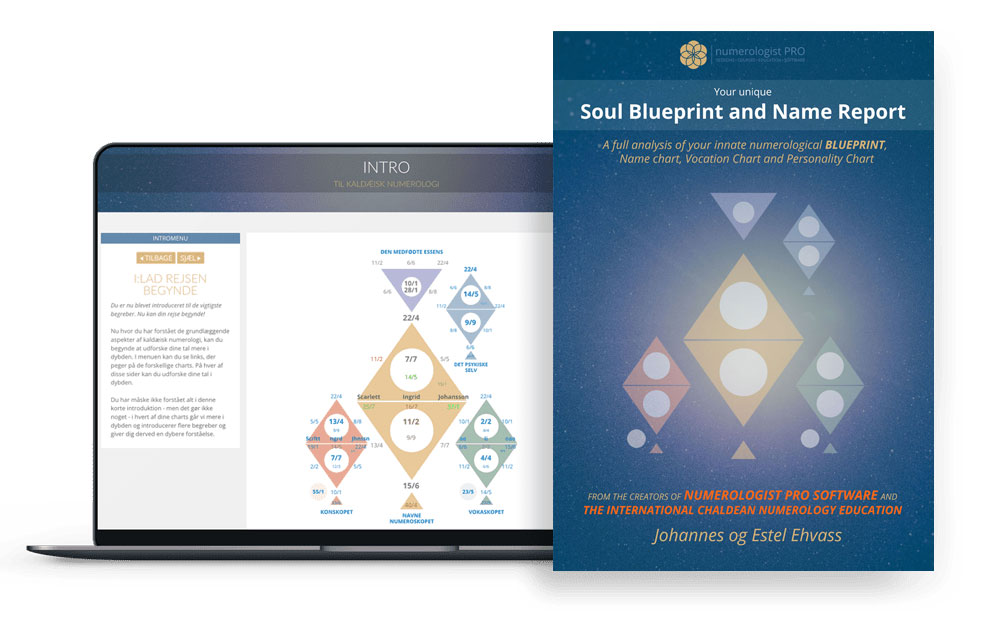Controversies and Conflicts in the Renaissance: Astrology Under Scrutiny

Estel Ehvass
Welcome, dear reader! The Renaissance marked a pivotal time for many disciplines, and astrology was no exception. As society rekindled its passion for the arts and sciences, so too did it revisit the stars. This era, renowned for its rebirth of knowledge, saw astrology intertwine with emerging scientific studies and the broader awakening of human curiosity. The cosmos, during this period, served not just as a guide for destinies, but also as a testament to humanity's relentless pursuit of understanding. Dive with me into this intriguing era, where stars and society found renewed harmony.
The Church’s Perspective: From Tolerance to Condemnation
Introduction

The Renaissance, a period of intellectual and cultural blossoming, witnessed a remarkable interplay between religious doctrine, humanism, and the esoteric sciences. Amid this confluence of ideas, astrology, with its claims of cosmic influence over earthly affairs, found itself at the nexus of appreciation and suspicion. The Church, as a dominant institution of the age, played a pivotal role in shaping the narrative around astrology. From initial tolerance to increasing scrutiny, the Church’s stance on astrology underwent significant shifts during the Renaissance.
Early Christian Views on Astrology
Astrology in Biblical Times
To understand the Church’s stance during the Renaissance, one must first delve into the roots of Christian views on astrology. The Bible, Christianity’s foundational text, offers a complex portrayal of astrology. While some passages seem to decry the practice, others appear more accommodating, even alluding to astrological events, such as the Star of Bethlehem guiding the Magi.
The Patristic Era: Church Fathers on Astrology
The early Church Fathers, who shaped much of Christian doctrine, held varied opinions on astrology. While figures like Augustine and Origen voiced concerns about deterministic interpretations of astrology undermining God’s omnipotence, others saw the heavens as a manifestation of divine order, with celestial bodies merely serving as signs, not causative agents.
Renaissance: A Period of Religious and Astrological Intersection
Astrology’s Rise in Popularity
The Renaissance’s revival of classical Greek and Roman knowledge led to increased interest in astrology. As scholars translated and disseminated ancient texts, astrology began permeating various strata of society, from the educated elite to the common folk. Astrological treatises, almanacs, and horoscopes became widespread, catering to a growing audience hungry for celestial insights.
The Church’s Dual Role: Patron and Critic
Interestingly, while the Church raised theological concerns about astrology, many of its members, including popes and cardinals, were avid patrons of astrological services. They commissioned astrologers for horoscopes, electional charts (to select auspicious times for events), and even medical advice based on astrological principles. This duality in the Church’s relationship with astrology underscores the era’s complexities.
From Tolerance to Condemnation: Key Factors
Threat to Church Authority
As astrology’s influence grew, the Church began to perceive it as a challenge to its moral and spiritual authority. If individuals turned to the stars for guidance on life’s decisions, they might bypass the Church’s teachings and sacraments, undermining its central role in guiding souls.
Theological Implications
Astrology, with its deterministic leanings, posed theological questions for the Church. If celestial bodies influenced individuals’ actions and destinies, where did that leave free will, a cornerstone of Christian belief? And if astrologers could predict future events, did that not infringe upon God’s exclusive omniscience?
Witchcraft and Heresy Accusations
The Renaissance, despite its enlightenment, was also a time of religious paranoia. The Church, in its drive to combat perceived heresies, often conflated astrology with witchcraft and sorcery. Astrologers, especially those delving into more esoteric or magical practices, faced accusations of heresy, leading to trials and, in some cases, dire punishments.
Church Councils and Formal Denunciations
The Council of Trent
The mid-16th century Council of Trent, convened to counter the Protestant Reformation and clarify Catholic doctrines, indirectly impacted astrology. While the council didn’t explicitly target astrologers, its reaffirmation of free will and condemnations of deterministic views indirectly challenged astrological beliefs.
Papal Bulls and Decrees
Various popes issued edicts either cautioning against or condemning specific astrological practices. While some of these decrees were more advisory in nature, warning against potential pitfalls of astrology, others were more direct in their censure, associating astrological practices with heretical beliefs.
Conclusion
The Church’s relationship with astrology during the Renaissance was multifaceted and dynamic. What began as a relatively benign intersection of faith and celestial divination evolved into a more adversarial dynamic as the stakes — theological, social, and political — grew higher. This journey from tolerance to condemnation reflects the broader tensions of an era caught between tradition and progress, faith and reason.
Early Scientific Critiques of Astrological Practices
Introduction
The Renaissance era, characterized by its profound revival of classical learning and burgeoning scientific discoveries, inevitably led to a heightened scrutiny of long-held beliefs, including astrology. While the Church was wrestling with the theological implications of astrology, the scientific community began to probe its empirical and rational foundations. This article delves into the early scientific critiques of astrology during the Renaissance, exploring the key figures and arguments that shaped the discourse.
The Dawn of the Scientific Renaissance
Rediscovering the Ancients
The translation and dissemination of ancient Greek and Roman texts, particularly those of Aristotle and Ptolemy, fueled the Renaissance’s intellectual fervor. While these works did bolster astrological practices for a while, they also laid the groundwork for scientific inquiry that would eventually challenge astrology’s principles.
Emergence of Empiricism
The Renaissance marked a shift from reliance on ancient authority to empirical observation and experimentation. This methodological change, emphasizing evidence and direct observation, would become a major stumbling block for the astrological tradition.
Critiques from Prominent Figures
Copernicus and the Heliocentric Model
Nicolas Copernicus’s revolutionary proposition that the Earth orbited the Sun, rather than the other way around, upended the geocentric cosmology that underpinned much of traditional astrology. While Copernicus did not directly challenge astrology, his heliocentric model destabilized its Ptolemaic foundations.
Galileo Galilei: Telescopic Observations
Galileo’s telescopic observations further eroded the traditional cosmological view. Discovering celestial bodies that didn’t fit into the established astrological framework, such as Jupiter’s moons, Galileo’s findings implicitly questioned astrology’s comprehensiveness and accuracy.
Johannes Kepler: A Reformer’s Perspective
Kepler, an astronomer and a practicing astrologer, sought to reform astrology, making it more consistent with astronomical observations. While he believed in certain astrological principles, he critiqued its more deterministic and superstitious elements, advocating for a more empirical and rational approach.
The Question of Causality
Challenging the Doctrine of Influences
A central critique of astrology was its claim that celestial bodies exerted specific influences on terrestrial events and human temperaments. Renaissance scientists began to question the mechanisms behind such influences, seeking tangible evidence and causal explanations which astrology struggled to provide.
The Issue of Precision
With the development of more accurate astronomical instruments, discrepancies between astrological calculations and actual celestial positions became evident. This raised concerns about the precision of astrological predictions and the validity of horoscopes.
The Humanist Critique
Debating Fate vs. Free Will
Humanists, with their emphasis on individual agency and potential, often clashed with the deterministic aspects of astrology. Figures like Pico della Mirandola argued that humans, created in the image of God, had the free will to shape their destinies, challenging astrology’s preordained fate.
Questioning Astrology’s Morality
Beyond its empirical validity, astrology was critiqued on moral grounds. Was it right for individuals to seek knowledge of the future, potentially bypassing divine will? Such ethical questions, posed by both humanists and religious figures, added another layer to the critiques against astrology.
Conclusion
The scientific critiques of astrology during the Renaissance were as diverse as they were profound. They marked the beginning of a seismic shift from a world governed by mystical influences to one defined by empirical observation and rational inquiry. While astrology would continue to adapt and survive in various forms, the Renaissance critiques set the stage for the modern divergence between astronomy and astrology, science and pseudoscience.
The Defense of Astrology During the Renaissance
Introduction
In an age defined by a thirst for knowledge and a rebirth of classical thinking, the Renaissance was a melting pot of ideas. Astrology, with its ancient roots and widespread influence, did not remain immune to critique. Yet, while it faced challenges from both religious and scientific sectors, it also found its defenders. This segment will delve into the defense of astrology during the Renaissance, exploring the arguments and figures who sought to uphold its place in Renaissance society.
The Historical Legacy of Astrology
Ancient Foundations
One of the primary defenses of astrology was its longstanding tradition, tracing back to the Babylonians, Egyptians, Greeks, and Romans. Advocates frequently referenced these ancient cultures, emphasizing the wisdom and sophistication of their astrological systems.
Integration with Medicine and Natural Philosophy
For much of history, astrology was intertwined with medicine and natural philosophy. The four humors, central to medical thought, corresponded with the four elements and zodiacal signs. This integration lent astrology a legitimacy, portraying it not as a mystical art but as a science grounded in the natural world.
The Logical and Empirical Defense
Celestial Bodies and Natural Effects
Defenders argued that just as the Moon affects the tides, other celestial bodies could influence the Earth and its inhabitants. This viewpoint sought to provide a logical basis for astrology, rooted in observable phenomena.
Consistency of Predictions
Astrologers often pointed to the accuracy of their predictions as evidence of the discipline’s validity. From weather patterns to political events, the fulfillment of astrological forecasts was presented as empirical proof of its efficacy.
Religious Approaches to Defense
Divine Plan and Celestial Order
Some religious thinkers proposed that astrology was a manifestation of the divine order. The heavens, in their perfect harmony, were seen as a reflection of God’s plan. Therefore, understanding and interpreting these celestial patterns was akin to gaining insights into the divine will.
Free Will vs. Determinism
While the deterministic aspects of astrology were often criticized, some theologians and astrologers argued that the stars indicated potentialities rather than fixed outcomes. This perspective allowed for the coexistence of free will and astrological influence, aligning more comfortably with Christian theology.
Astrology as Symbolism and Allegory
The Moral and Spiritual Lessons
Many defenders posited that astrology, beyond its predictive qualities, held moral and spiritual lessons for humanity. The cycles of the planets and zodiacal tales were seen as allegorical, imparting wisdom and guiding individuals towards virtue.
The Microcosm and Macrocosm
Drawing from Hermetic thought, astrologers emphasized the principle “as above, so below.” Humanity (the microcosm) was believed to mirror the universe (the macrocosm). This philosophy strengthened the bond between man and cosmos, reinforcing the relevance of astrology.
Key Figures in the Defense of Astrology
Marsilio Ficino
Ficino, a leading Renaissance humanist and Platonist, was instrumental in defending and reformulating astrology. He integrated Neoplatonic and Hermetic ideas, presenting astrology as a divine science that bridged the earthly and celestial realms.
Johannes Kepler
As previously discussed, Kepler, while critical of certain astrological practices, was a firm believer in the discipline. He endeavored to reform astrology, aligning it more closely with astronomical observations and mathematical precision.
Girolamo Cardano
Cardano, an eminent physician and astrologer, wrote extensively on the subject. While acknowledging its limitations, he argued for astrology’s merits, particularly in medicine and personal guidance.
Conclusion
Despite the challenges posed by religious and scientific critiques, astrology found resilient defenders during the Renaissance. These individuals, equipped with a blend of tradition, logic, and spiritual insight, presented a multifaceted defense that ensured astrology’s enduring influence and relevance. While the debates of the Renaissance laid the groundwork for the modern divide between astrology and astronomy, they also highlighted the rich and complex tapestry of beliefs and ideas that defined the era.

Johannes & Estel: Renowned authorities in Numerology, Astrology, and the esoteric arts. As the founders of Scandinavia's premier Numerology school, we're delighted to share our insights through this curated series on astrology. Dive in and discover the stars.
The Worlds Most Advanced Numerology Report

Your birthdate reveals your unique life purpose, potentials, talents, weaknesses, and karma in this life.
Your names show what you attract into your life regarding your career, relationships, happiness, money, and success.
GET THE REPORT HERE
Introduction to Astrology
The history of Astrology
Moving beyond deterministic astrology
Foundation of Astrology: Planets, Signs and Houses
Astrology and the Holographic Universe
The Holographic Universe
The Human Psyche as a Mirror to The Solar System
The Human Body as a Mirror to The Star Signs
Astrology Background
Egyptian Astrology
Mayan Astrology
Chinese Astrology
Indian Astrology - Jyotish
Celtic Astrology
Tibetan Astrology
Mesopotamian Astrology
Early Mesopotamian Astrology: The Dawn of Celestial Divination
Enuma Anu Enlil: The Epicenter of Babylonian Celestial Omen Interpretation
Babylonian and Chaldean Astrology
Babylonian and Chaldean Astrology
Chaldean influence and evolution
Chaldean Wisdom: Safeguarding and Transmitting Astrological Knowledge
Hellenistic Astrology
Hellenistic Astrology background
Claudius Ptolemy and Tetrabiblos
Vettius Valens
Dorotheus of Sidon
Persian Astrology
Persian Astrology background
Sassanian Astrology
Late Antiquity and The Transition Period
Late Antiquity and The Transition Period
Hellenistic to Islamic Transition: The Torchbearers of Astrological Wisdom
Islamic Golden Age
Arabian Astrology Background
Arabian Astrology Contributions
Medieval Astrology
Introduction: The Medieval Cosmos
Monastic Preservers: Astrological Knowledge in the Dark Ages
Astrology in Medieval Medicine
Kings, Queens, and Constellations: Astrology in the Medieval Court
The Church and the Stars: A Contentious Relationship
Universities and Scholastic Pursuits: Academic Astrology
Astronomy & Astrology: Tools of the Trade
Medieval Astrological Houses and the Synthesis of Traditions
Transition to the Renaissance: Humanism and the Celestial Arts
Reflections: Medieval Astrology's Echoes in Modern Practice
Astrological Art of the Middle Ages
Famous Medieval Astrologers
Medieval Astrological Texts
Renaissance Astrology
Renaissance Humanism and Astrology
Scientific Advancements and Astrology
The Social Fabric: Astrology in Everyday Renaissance Life
Court Astrologers of the Renaissance
Controversies and Conflicts: Astrology Under Scrutiny
Renaissance Texts and Authors: Continuation of a Tradition
Astrology and Art: Celestial Imagery in the Renaissance
Renaissance Astrological Practices: Evolutions and Innovations
End of the Renaissance: The Gradual Decline of Astrological Influence
Renaissance Astrology's Echo in the Modern World
Enlightenment Astrology
Introduction: The Enlightenment and Astrology
Challenging the Stars: Astrology's Critics during the Enlightenment
Astrology and the New World
Astrology in the 19th Century
The Dawn of Psychological Astrology
Astrology in the 20th Century: A Modern Renaissance
Astrological Associations and Schools
Modern Controversies and Astrology
Astrology and Popular Culture
Astrology and Technology
Current Trends and Future Directions in Astrology
Conclusion: Reflecting on Astrology's Evolution
The Planet Significances
The Sun in Astrology
The Moon in Astrology
Mercury in Astrology
Venus in Astrology
Mars in Astrology
Jupiter in Astrology
Saturn in Astrology
Uranus in Astrology
Neptune in Astrology
Pluto in Astrology
Chiron in Astrology
Black Moon Lilith in Astrology
Pars Fortuna in Astrology
Ceres in Astrology
Houses in Astrology
Introduction to Astrological Houses
The Angular Houses
The Succedent Houses
The Cadent Houses
The 1st House
The 2nd House
The 3rd House
The 4th House
The 5th House
The 6th House
The 7th House
The 8th House
The 9th House
The 10th House
The 11th House
The 12th House
Interaction Between Houses
Derived Houses, House Rulers, and Interceptions
Conclusion: Synthesizing House Knowledge
All Materials © 2023 & 2024 Numerologist PRO
Terms of Service: Information provided by Numerologist PRO and/or from this web site is not intended as advice (medical, psychological, financial or other), nor is it intended to replace your work with a qualified professional (medical or otherwise). You should maintain your relationship with your providers and consider the services of this site as informational only. Any information, stories, examples, or testimonials presented on this website do not constitute a warranty, guarantee, or prediction regarding the outcome of an individual. This web site is a sharing of knowledge and information of numerology/energy work based on the experiences of Numerologist PRO. You are encouraged to make your own decisions based on your own research and inner guidance. By booking and receiving services, you agree to fully release and hold harmless Numerologist PRO and all it's affiliated numerologists from and against any liability or claim that may arise out of or in connection with their service(s).
Numerologist PRO © 2021

CONTACT
numerologist@numerologistpro.com
LIKE US, and get free numerology tools, info about your personal numbers, best business dates of the year - and more!
YOUR FREE NUMEROSCOPE CHART
Enter your name and email below and get access to our free online numerology chart tool.